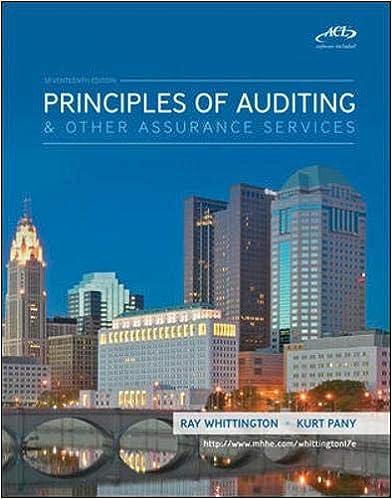Answered step by step
Verified Expert Solution
Question
1 Approved Answer
Unit 2 Case: Butler Manufacturing Corporation Butler Manufacturing Corporation planned to raise capital for a plant expansion by borrowing from banks and making several stock
Unit 2 Case: Butler
Manufacturing Corporation
Butler Manufacturing Corporation planned
to raise capital for a plant expansion by
borrowing from banks and making several
stock offerings. Butler engaged Meng CPA,
to audit its financial statements. Butler told
Meng that the financial statements would
be given to certain named banks and
included in the prospectuses for the stock
offerings.
Meng did not confirm accounts receivable
during the audit, and as a result, failed to discover a material overstatement of accounts receivable.
Additionally, Meng was aware of a pending class action product liability lawsuit that was not disclosed in
Butlers financial statements. Despite being advised by Butlers legal counsel that Butlers potential
liability under the lawsuit would result in material losses, Meng issued an unqualified opinion on Butlers
financial statements.
Union Bank, one of the named banks, relied on the financial statements and Mengs opinion in giving
Butler a $500,000 loan.
A couple of months after obtaining the Bank loan, Butler also raised $16,450,000 through stock
offerings.
Shortly after obtaining the loan from Union, Butler began experiencing financial problems, but was able
to stay in business because of the money raised by the offerings. Then, Butler was found liable in the
product liability suit. This resulted in a judgment Butler could not pay. Butler also defaulted on the loan
from Union and was involuntarily petitioned into bankruptcy. This caused Union to sustain a loss and
Butlers stockholders to lose their investments. As a result,
Union sued Meng for negligence and common-law fraud.
The stockholders who purchased Butlers stock through the offerings, as well as stockholders who
purchased shares subsequently traded on a national securities exchange, sued Meng, alleging fraud
under Section 10(b) and Rule 10b-5 of the Securities Exchange Act of 1
Questions
Discuss Unions charge of negligence against Meng. Do they have a case; i.e. is the charge applicable? Why or why not?
Discuss Unions charge of common law fraud against Meng. Do they have a case; i.e. is the charge applicable? Why or why not?
In your opinion, would the stockholders be successful in a suit against Meng under the antifraud provisions of Section 10(b) and Rule 10b-5 of the Securities Exchange Act of 1934? Why or why not?
Step by Step Solution
There are 3 Steps involved in it
Step: 1

Get Instant Access to Expert-Tailored Solutions
See step-by-step solutions with expert insights and AI powered tools for academic success
Step: 2

Step: 3

Ace Your Homework with AI
Get the answers you need in no time with our AI-driven, step-by-step assistance
Get Started


